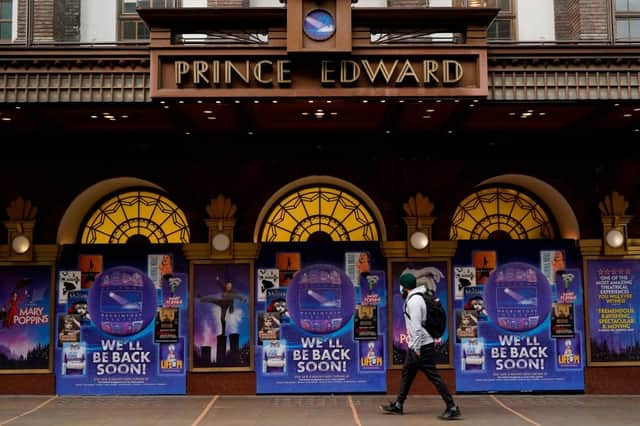Nightclubs and theatres expected to stay closed until 90% of UK have had Covid jab in September


Nightclubs, gigs, cinemas and theatres are expected to have to wait until September before they can reopen to the public, the vaccines minister has suggested.
Nadhim Zahawi hinted that venues that will need to mass test visitors will not be allowed to reopen until almost all of the UK population has been vaccinated against Covid-19.
Advertisement
Advertisement
Mr Zahawi also refused to rule out that social distancing measures, such as wearing a face covering and keeping up to two metres apart, will carry on for some time.
Mass testing for larger venues
The Prime Minister has earmarked using lateral flow tests as a key method in allowing larger venues to reopen once lockdown measures start to be lifted.
These tests can return results within half an hour and could easily be used in various leisure settings, such as cinemas and theatres.
However, Mr Zahawi suggested on Tuesday (16 February) that such testing will only be deployed once nine in 10 adults have already had a Covid-19 vaccine.
Advertisement
Advertisement
He said: “We want to make sure we reopen the economy as quickly as possible, but make sure it’s sustainable.
“The combination of the national vaccination programme really delivering the protection for the whole of the adult population, and then rapid testing, should help us reopen our economy.”
Mr Zahawi added that mass testing will be deployed to reopen venues in “a world where we have the adult population vaccinated to those high levels”, and insisted the government wants to have offered a Covid-19 vaccine to every adult in the UK by September.
However, it is not expected that large venues will be able to reopen until this milestone is reached.
Advertisement
Advertisement
Boris Johnson announced plans to rely on rapid Covid-19 tests for reopening the economy at a press conference on Monday (15 February), dismissing calls to use vaccine passports in favour of the quick turnaround tests.
While he acknowledged that vaccine passports may be needed to travel abroad, it is unlikely they will be used in the UK to help lift restrictions.
He said: “I think inevitably there will be great interest in ideas like can you show that you had a vaccination against Covid in the way that you sometimes have to show you have had a vaccination against yellow fever or other diseases in order to travel somewhere."I think that is going to be very much in the mix down the road, I think that is going to happen.
"What I don't think we will have in this country is - as it were - vaccination passports to allow you to go to, say, the pub or something like that."
High uptake for Covid jab
Advertisement
Advertisement
More than 15 million people across the UK have now been given their first dose of a Covid-19 vaccine, with the achievement hailed as a ‘significant milestone’ in the fight against the disease.
The passing of the milestone paves the way for the next phase of the rollout, with the government aiming to offer a vaccine to the next five priority groups by the end of April.
These groups include the over 65s, all adults aged 16 to 65 in an at-risk group, the over 60s, over 55s and lastly the over 50s. Carers will also be offered the vaccine as part of the next phase.
NHS England has already sent out 1.2 million invitations to the over 65s to book an appointment for their vaccine, with a similar number expected to go out this week.
Advertisement
Advertisement
A recent poll by Ipsos Mori found that 89 per cent of UK adults plan to get the Covid-19 vaccine, which was the highest proportion out of any country surveyed.
Mr Zahawi said that means the UK’s uptake is “probably the highest in the world”, and is well above that of Australia at 73 per cent, America at 71 per cent, Germany at 68 per cent and France at 57 per cent.
The vaccine minister also said he is confident that supplies of the jab will increase over the coming months, with the UK doubling its deployment in the next 10 to 11 weeks to allow everyone who has already been vaccinated to receive their second dose.
He said: “Supplies are coming online. I see much greater volume in March and April, tens of millions of doses coming through, and I’m confident we’ll hit our target.”